Marc Vetri and Jeff Benjamin Talk 25 Years of the Finest Dining
A quarter century after Vetri Cucina ignited Philly’s restaurant boom, the two men who made it happen reflect on the early days of their empire, tussling with the city, and Marc’s habit of speaking his mind.
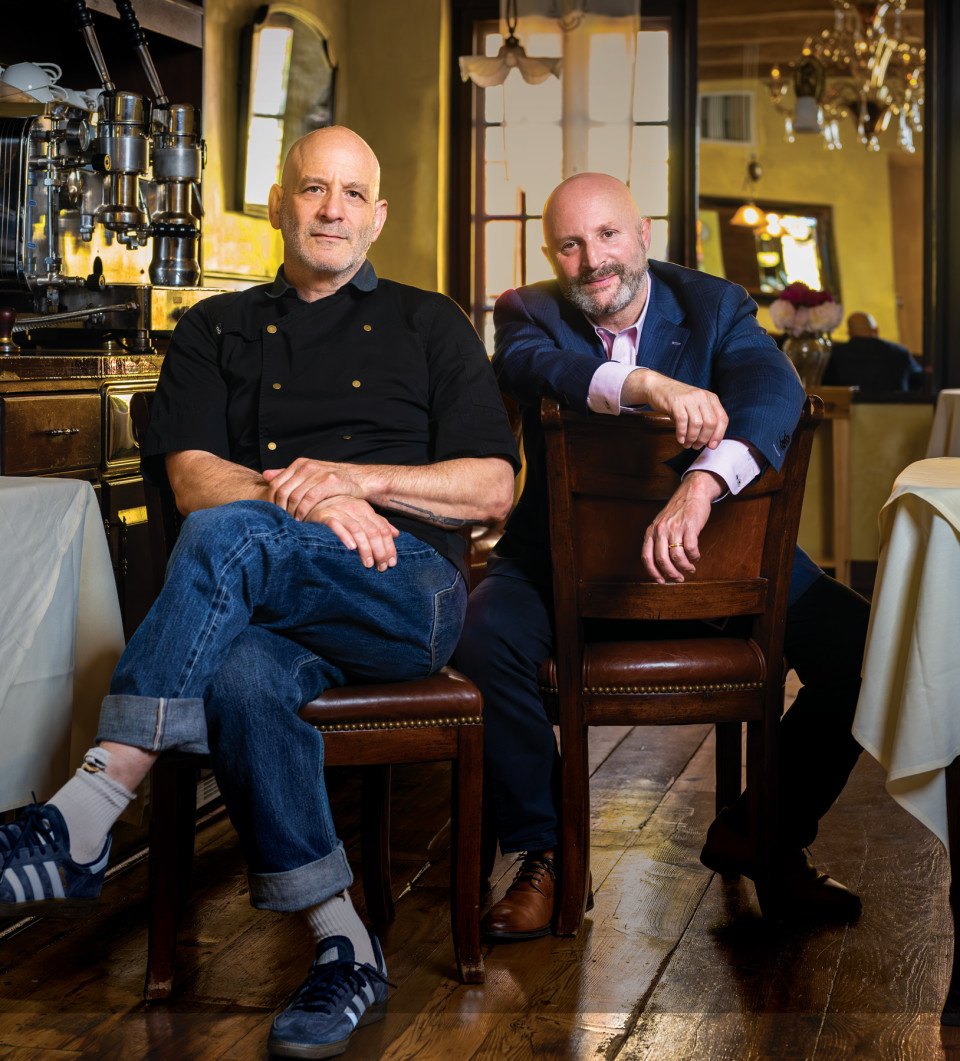
Marc Vetri (left) and Jeff Benjamin / Photograph by Linette & Kyle Kielinski
Since Vetri Cucina debuted in 1998 in what’s now called Midtown Village, Marc Vetri and Jeff Benjamin’s restaurant has become a Philly fine-dining staple, known just as much for its rustic yet elegant Italian cuisine as for its frequently opinionated chef. In this interview, Vetri and Benjamin tell us all about it.
September 22, 1998. Take me back to that first night of service.
Vetri: I was nervous as hell. It was me and one other guy in the kitchen. And 14 people showed up. This was the ’90s. Restaurants didn’t have websites. There was no Foobooz. People found out about us by word of mouth.
Were people immediate fans of the restaurant?
Benjamin: No. We had a lot of people showing up who used to eat there when it was Philippe Chin’s place, Chanterelles. People wanted to see what we were all about. And we had people saying, “This is supposed to be Italian food? Where’s the Caesar salad?”
Vetri: “Where’s the meatballs?! You’ll never make it.”
Right. Philadelphia in 1998 was very chicken parm.
Vetri: Listen, I love red sauce and meatballs more than the next guy. But that’s the American version of Italian food.
Benjamin: Italy is a fairly decent-sized country. If you came to America and only went to Texas, you would go back to whatever country you came from and think that everybody eats barbecue. Before we opened Vetri, Marc had lived in Northern Italy. Lots of ragus. Not a lot of garlic or tomatoes. So that’s where a lot of the influence came from.
And do you still focus on that region today?
Vetri: It’s really from all over Italy by now. I don’t think about the restaurant as “food from Italy.” I think about it more like we have this sensibility from Italy where you use more of the ingredients from where you are. Local ingredients. Of course, that concept is everywhere these days, but that wasn’t the case back then.
How often do you travel to Italy?
Vetri: Once or twice a year.
Benjamin: We try to stretch our travels now to places or towns that we haven’t seen. Wine helps us do that. We become enamored with a wine from a certain place in Sicily, we go to that town in Sicily and fall in love with the food there. The next time you come into Vetri, you’ll see menu changes based on that trip. For 25 years, my wife has said the secret to Vetri is going three weeks after Marc gets back from Italy, because there’s gonna be some cool menu shit happening.
Marc, what was one of your earliest restaurant jobs in Philly?
Vetri: I used to work three nights a week at the White Dog when I was at Drexel. I started off working there in 1985, during my freshman year. I was the weekend Sunday brunch guy and used to make hundreds of omelets. It was nuts.
Benjamin: Victor, it’s really a rite of passage. Any chef you’ve ever interviewed probably used to make omelets at an omelet station at brunch.
And Jeff, what were the early days of your culinary career?
Benjamin: I worked in larger places, corporations. I worked at Aramark and ran dining rooms for Citibank and then went to work for an investment bank, running their dining room.
How did you find each other?
Benjamin: I was living in New York, and so was Marc. This is after he lived in Italy for a while. I played golf with Marc’s brother, and in 1996, he said his brother was a chef and that we should meet. He was trying to put two people in the culinary business together. I heard that Marc was considering moving to Philadelphia to start something there. I called Marc and said if you’re serious about this, let’s talk. And he invited me to Philly for July 4th. I took a train down, and we looked at the decrepit restaurant.
Vetri: It wasn’t that bad.
Benjamin: The awning was falling off.
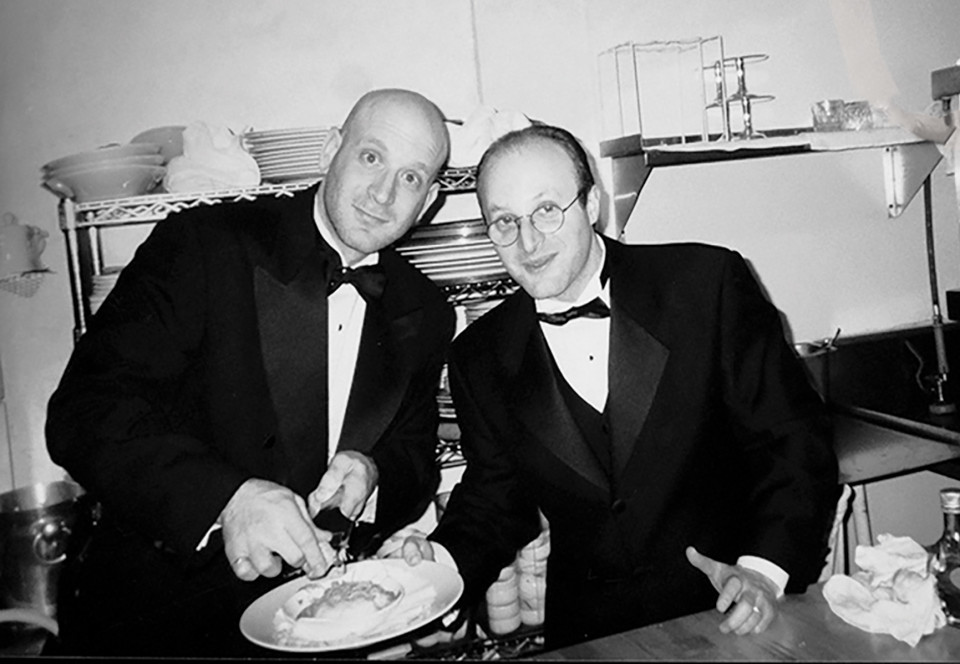
Marc Vetri (left) and Jeff Benjamin at Vetri Cucina’s truffle dinner in the fall of 1999 / Photograph courtesy of Marc Vetri and Jeff Benjamin
What was 13th and Spruce like back then?
Vetri: Everybody warned me: “You don’t wanna be on that side of Broad Street. It’s really bad.”
Benjamin: People didn’t walk around east of Broad Street back then. The parking lot at Vetri closed at 8 p.m.
Marc, when Jeff got involved, was the idea of Vetri fully formed?
Vetri: Yes. Friends of my parents encouraged me to look at larger restaurants. But I had a vision of opening a little restaurant where I make the food that I love and where we have awesome service, which is where Jeff came in. Rustic yet elegant. I had all these people who wanted to give me money to invest in a larger restaurant. Yet when I wanted the small Chanterelles space, suddenly nobody had any money. But when I walked into the space, I was like, this is it.
What did it cost to open Vetri?
Vetri: Philippe looked around the property and said, “I’ll give you everything for $75,000.” After 14 banks, I was able to get a loan for 100 grand. Plus, I had a little money in savings, and then I maxed out an Amex and a Visa. And we opened for 150 grand. We signed the lease in July of ’98 and got to work on the restaurant. The back of the house was a real mess — rotted-out wood, electrical. All of a sudden, it was September. We weren’t ready to open. But I said, “I don’t have any money left,” so we had to open, and that’s what we did. My bank account was at zero. I owed Visa $15,000. I owed Amex $15,000. It took me a year and a half to pay off those cards.
Fast-forward 17 years. You’d built your empire to include eight restaurants and sold all but Vetri Cucina to URBN in a deal that had you running food-and-beverage programs for the company, then got out completely two years after selling. A lot of people wondered why you partnered up with a giant corporation like URBN in the first place.
Vetri: We had always self-funded everything. We always got loans from banks. We never had investors. Every time we did a new project, we had to refinance our houses; we had to leverage this and that. So I wanted to open more places, but I didn’t want to mortgage another house or leverage myself anymore. I’m 56 now, so I was 48 then, and I just didn’t want to do it anymore. A lot of folks were like, how does any of this make sense? For us, it actually made complete sense to sell to URBN.
Benjamin: And soon, we’ll be as big as we were before we sold to them.
Vetri: We sold URBN seven restaurants, and once we open another in Las Vegas this fall, we’ll be back to eight restaurants total.
A lot has been said, including by you, Marc, about Philadelphia being unkind to small business. Has it gotten progressively worse?
Vetri: Jeff, I think you should field this! [laughs]
Benjamin: This is where I start hitting Marc under this table. Victor, look, it’s no secret that Marc has been open about his feelings over the city’s kindness or unkindness to small businesses. To say it has gotten progressively worse would be a huge generality. Some things have definitely gotten better. Like L&I’s online system and 311. Wonderful.
What’s not?
Benjamin: There’s an incredible disconnect that continues to happen with how you get things done and when. A regulation should be: if A, then B. But it’s actually: if A, then B, but only if you’re on this street, in this neighborhood — and if so-and-so is your Councilperson, it works another way. It’s a tale of multiple cities. It makes for nonstop confusion, especially for those of us with multi-unit operations.
I can see how that could be infuriating.
Benjamin: This administration is unwilling to engage with small-business owners. They treat us like we’re the devil. When you just want to sit down and talk to somebody, you can’t do it. So when it came to the pandemic, there were all these rules, and we wanted to know if we were sure we were on the right path and how to help the industry survive. Victor, you reported on things Marc said during the pandemic, but all of that was just born out of frustration.
Vetri: We just wanted somebody to listen to us!
Benjamin: Look, we’ve been in business for 25 years and have a great staff. We knew we weren’t going to be laying off people. But we were concerned about the industry as a whole. Being closed down. Being told they could reopen but then told they can’t. We wanted to know what we could do to figure out how to get to the other side of this, and it got watered down into a lot of arguing back and forth.
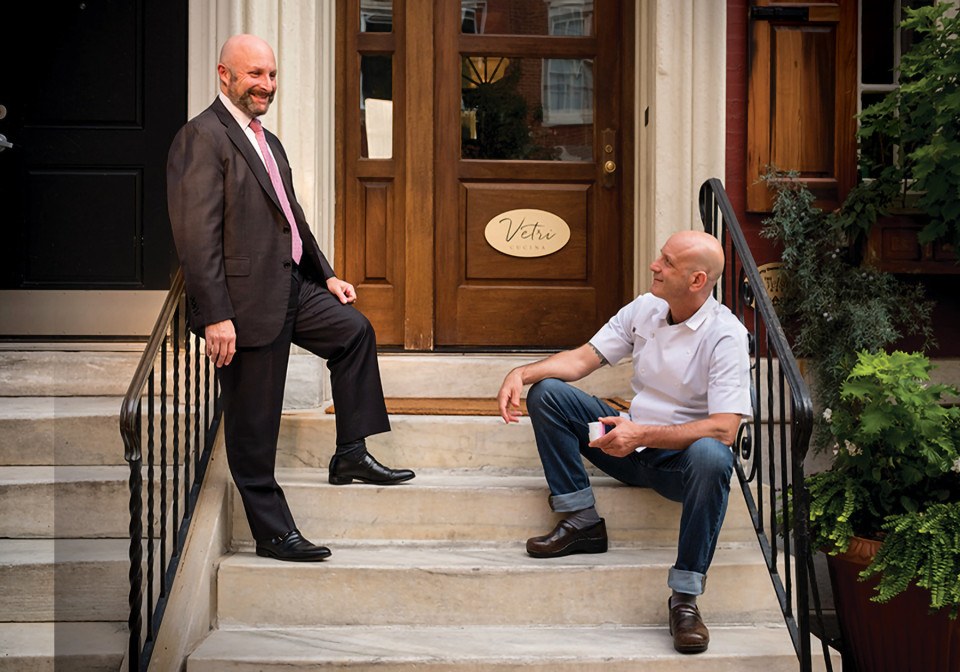
Jeff Benjamin (left) and Marc Vetri
/ Photograph courtesy of Marc Vetri and Jeff Benjamin
You haven’t closed up shop, so it must be worth it.
Benjamin: We’ve talked about packing it in. Not long ago, we sat at this table, and Marc said, “We’ve had a really good run, and I don’t think people would be upset if we wanted to move on to other things.”
Vetri: But then we thought about the livelihoods of the folks who have been with us for years. We have a guy here who opened with us. We have many people who’ve been here five, 10, 15 years.
Were previous mayors better for business than Jim Kenney?
Vetri: The last mayor, Michael Nutter — he would at least listen to us if we had a thought. His admin folks would respond to emails. With this current administration, we are viewed as the enemy.
Benjamin: Even if you don’t want to like a member of the business community, it’s amazing to me that they don’t say, “Wow, this is a business with so much sales tax and wage tax. They are employing people. They are doing philanthropy. We should probably encourage them to stay in business.” It’s definitely been demoralizing.
But you’re not going anywhere?
Vetri: No. Philly is my home. I love it so much here. Who else dyes their beer green for their football team?
Marc, what societal changes have affected business the most since you started?
Vetri: The advent of social media. How customers can interact with restaurants and how restaurants can interact with customers. With social media, we’ve been able to get a lot of younger folks in.
Benjamin: We also have a much more informed dining public. They’re not complaining anymore about the fact that we don’t have a Caesar salad. And yes, social media, of course. People can say whatever they want, and people believe it. The ability to say things and get information 140 characters at a time isn’t always a good thing. It can be a great disservice.
Well, since you brought up social media: In general, restaurant owners specifically stay out of controversial topics. But Marc, you’re quite different. Jeff, do you sometimes slap your head and say, “What the hell is Marc thinking?”
Vetri: Sometimes? [laughs]
Benjamin: “Sometimes” is an understatement. I do wish he would put things in draft and send later. Let it marinate.
Vetri: I do let things marinate. Sometimes. But I do have to say, Victor, I’m super-honest about things, and there are all kinds of things that happen that every single restaurant owner is whining to me about, and I’ll speak up about it. They all call me and say a big thank-you for speaking up. Seriously. And I say, “You’re welcome.” But why won’t they speak up? Your guess is as good as mine. So I speak up. For better or for worse. I always say to my wife that she married me for better or for worse and that it might be worse right now, but there’s far more stuff that’s better.
Marc, how much longer do you plan to cook food for other people?
Vetri: For the rest of my life. I love hospitality. I love my life. And I love what we’ve created. This is everything to me. We’re not just making food for folks. We’re welcoming them into our home and making them happy; we’re sharing an experience; we’re helping them create memories. They want to celebrate, and we want to celebrate with them, and I’m just grateful that they allow us to share these moments in their lives. Some people will remember these moments in our restaurant for the rest of their lives. That’s just amazing. I love it.
From Bergamo to Bryn Mawr: A Timeline of Key Moments in the Vetri Empire
1993:
Marc Vetri moves to Bergamo. He spends a year and a half in Italy learning to make pasta and working in six restaurants.
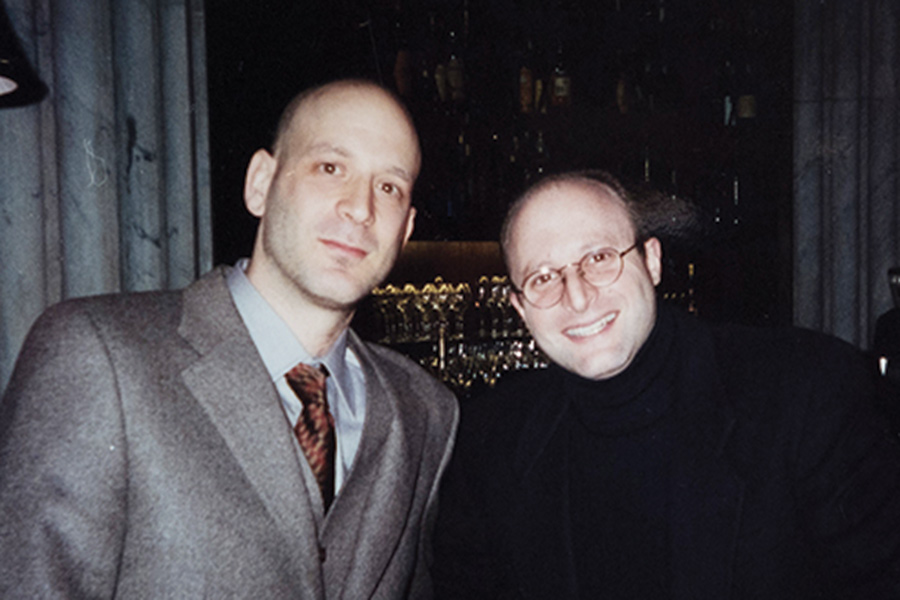
Vetri and Benjamin in 1996 / Photograph courtesy of Marc Vetri and Jeff Benjamin
1996:
Vetri and Jeff Benjamin meet in New York City while the former is chef at Bella Blu on Lexington Avenue and Benjamin is working in corporate dining.
June 1998:
Vetri agrees to pay Philippe Chin $75,000 for the Chanterelles space at 1312 Spruce Street — the site of Georges Perrier’s first incarnation of Le Bec-Fin.
July 1998:
Benjamin visits Philadelphia and agrees to join Vetri as maître d’ at Vetri Cucina.
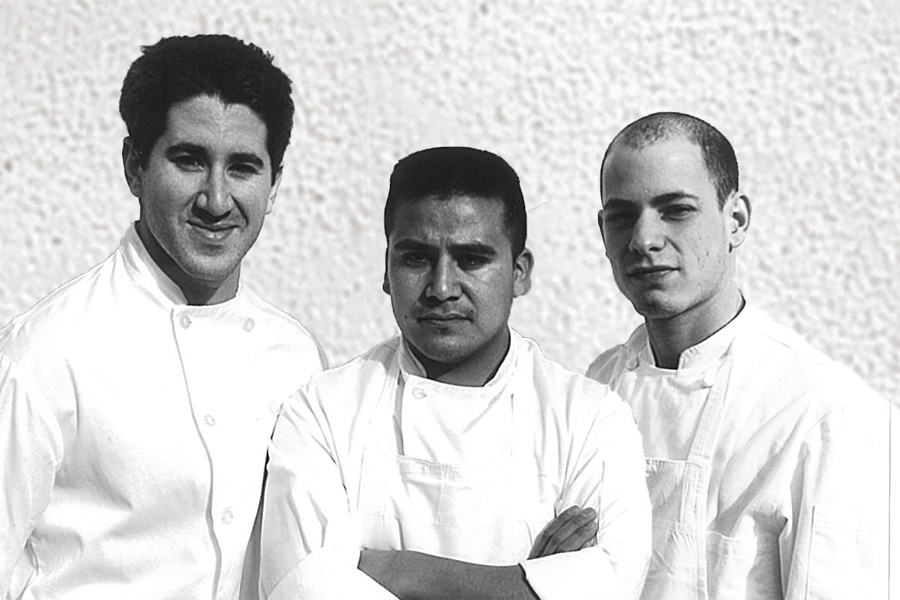
From left: Michael Solomonov, Dionicio Jiménez and Joey Baldino at Vetri / Photograph courtesy of Marc Vetri and Jeff Benjamin
September 22, 1998:
Vetri Cucina’s first night of service. Employees in the early years to follow included Michael Solomonov, Dionicio Jiménez and Joey Baldino.
1999:
Food & Wine names Vetri one of its top 10 new chefs in America.
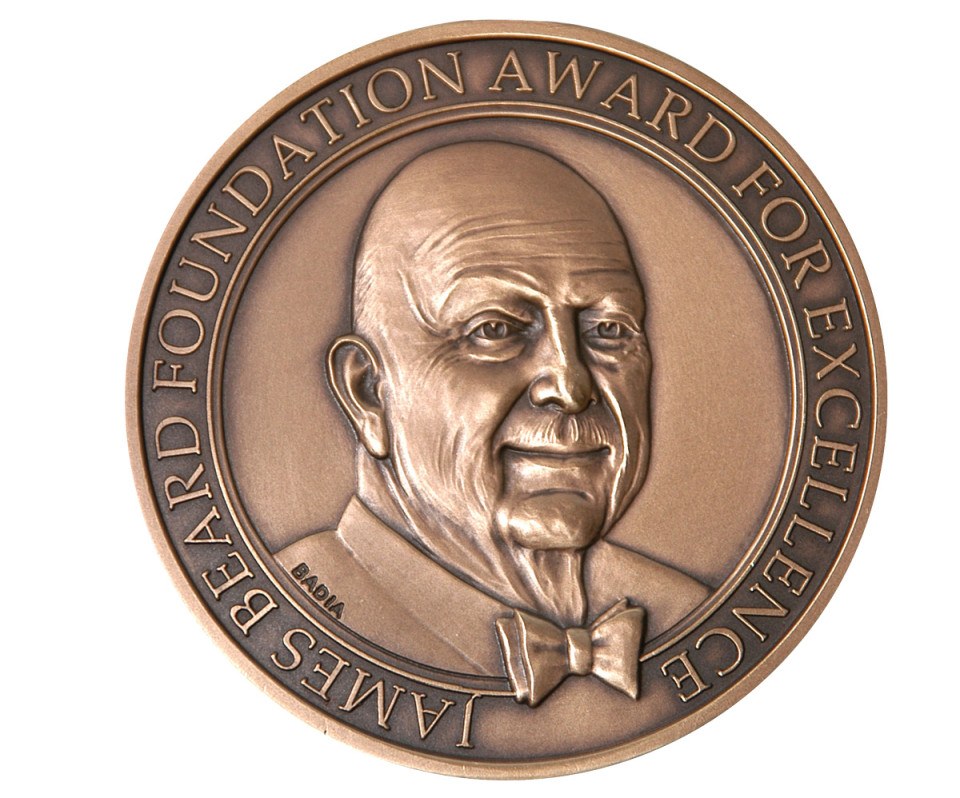
Photograph via Getty Images
2005:
Vetri earns the James Beard Award for Best Chef: Mid-Atlantic — the only win among many nominations.
2007:
Vetri opens his second restaurant, Osteria, on North Broad, helping turn the neighborhood into a destination once again.
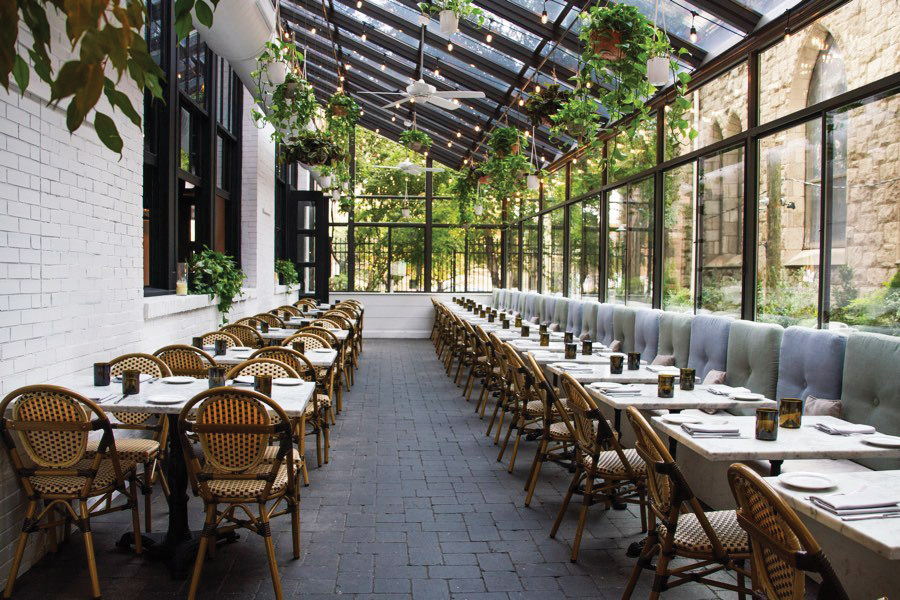
Osteria / Photograph courtesy of Marc Vetri and Jeff Benjamin
2010-2015:
Vetri and his team launch six more restaurants: Amis, Lo Spiedo, a Moorestown edition of Osteria, Alla Spina, and two Pizzeria Vetri locations.
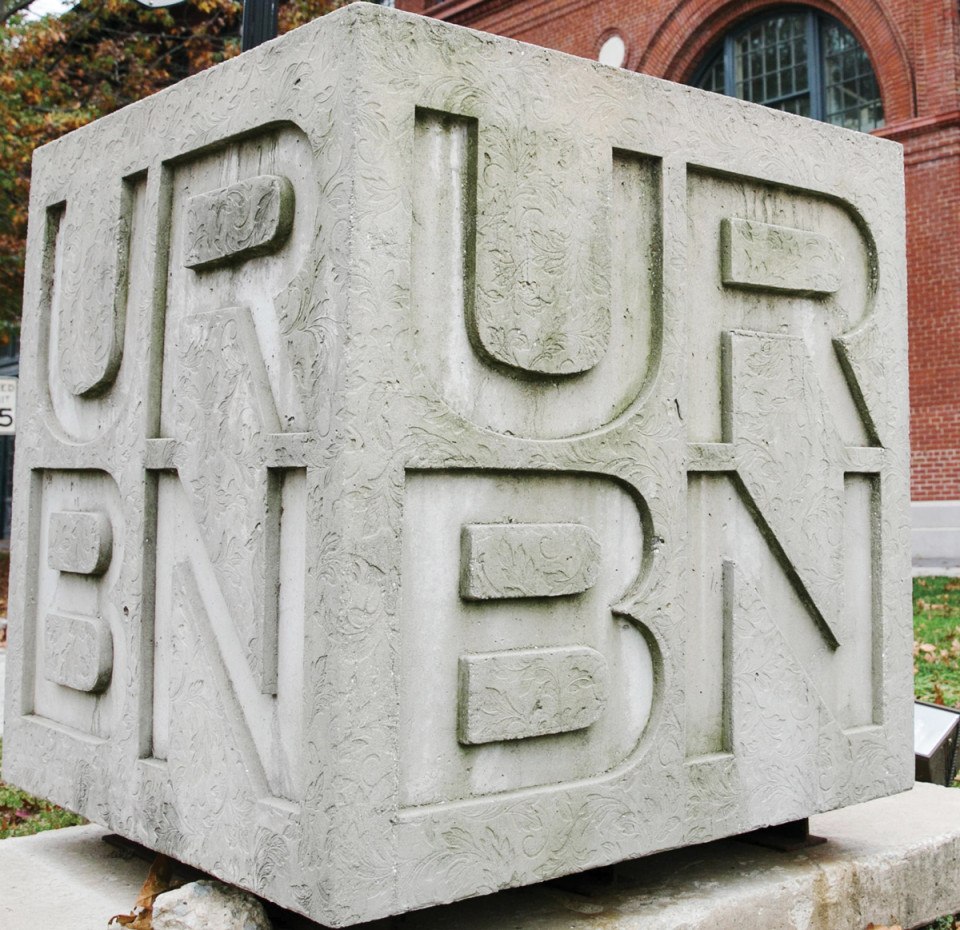
Photograph by Kristoffer Tripplaar/Alamy Stock Photo
November 2015:
Vetri agrees to sell all his restaurant assets — except Vetri Cucina — to URBN. Vetri and Benjamin become employees of URBN and run those restaurant acquisitions.
2017:
Vetri and Benjamin quit their positions with URBN — they say amicably — to embark on new ventures.
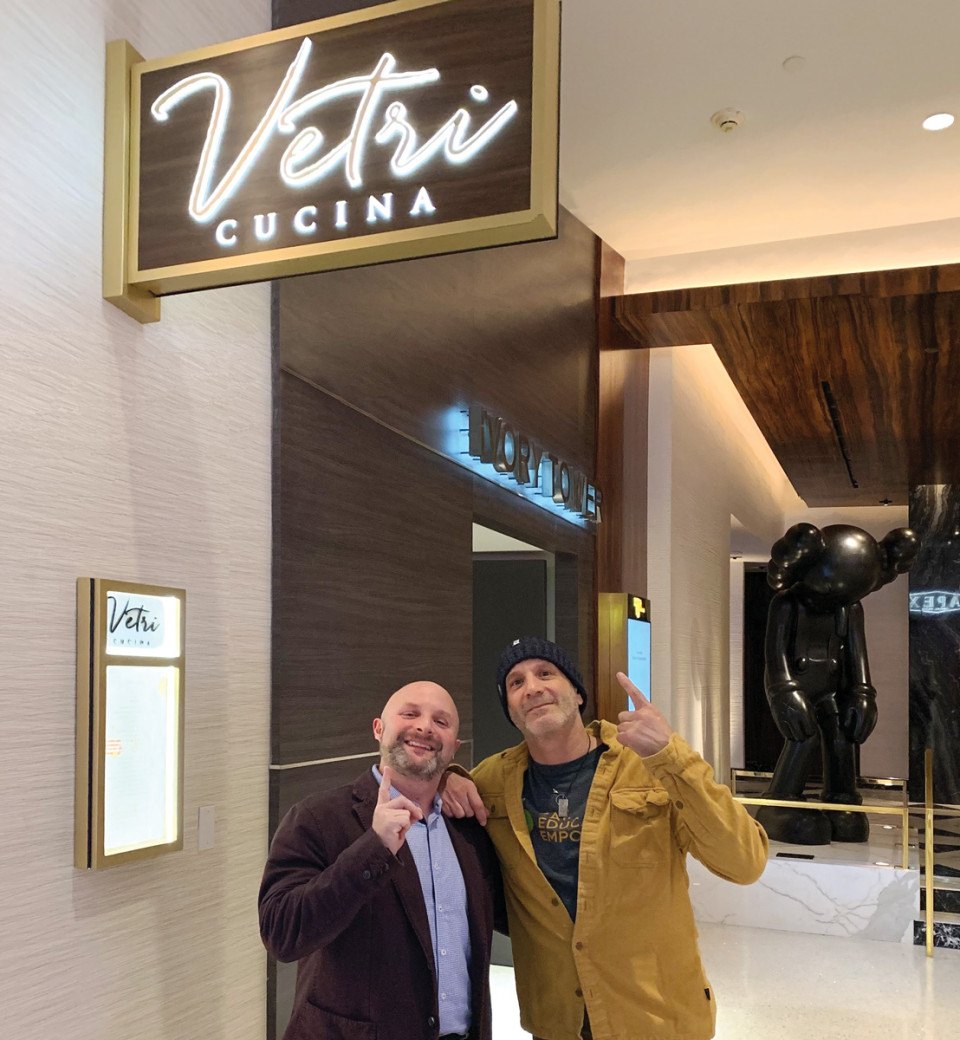
At Vetri Cucina in Las Vegas / Photograph courtesy of Marc Vetri and Jeff Benjamin
November 2018-present:
The duo opens Vetri Cucina in Las Vegas, Fiorella in the Italian Market, Osteria Fiorella in Las Vegas, Mr. Maurice in Kyoto, Fiore Rosso in Bryn Mawr, and Pizzeria Salvy in Center City. They plan to add another Las Vegas restaurant to their roster this November.
Published as “Fire-Tested” in the August 2023 issue of Philadelphia magazine.


